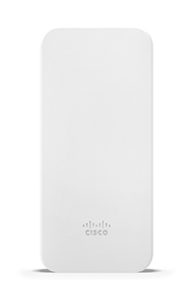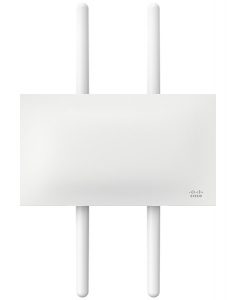Cloud
Managed
Wireless
Outdoor or Rugged APs
Cloud-Managed, IP67-Rated, Ruggedized 802.11ac Wave 2 Access Points
|
MR70 (EOL) |
MR74 (EOL) |
MR76 |
MR78 |
MR84 (EOL) |
MR86 |
|
| Usage | Basic outdoor/rugged WLAN, very low density deployments | Rugged/outdoor general purpose WLAN, outdoor campuses, industrial, point-to-point links, outdoor location services | Rugged/outdoor general purpose WLAN, outdoor campuses, industrial, point-to-point links, outdoor location services | Basic outdoor/rugged WLAN, very low density deployments | Highest performance 802.11ac Wave 2 with Multigigabit for tough RF and high-density environments | Highest performance 802.11ac Wave 2 with Multigigabit for tough RF and high-density environments |
|---|---|---|---|---|---|---|
| Radio Specification | 1 × 802.11b/g/n 1 × 802.11a/n/ac 1.3 Gbit/s max rate 2×2:2 MU-MIMO with beamforming |
1 × 802.11b/g/n 1 × 802.11a/n/ac 1 × WIDS/WIPS 1 × Bluetooth 1.3 Gbit/s max rate 2×2:2 MU-MIMO with beamforming |
1 × 802.11b/g/n/ax 1 × 802.11a/n/ac/ax 1 × WIDS/WIPS 1 × Bluetooth 1.5Gb/s max rate 2.4 GHz 2×2:2 and 5 GHz 2×2:2 with beamforming |
1 × 802.11b/g/n/ax 1 × 802.11a/n/ac/ax 1 × WIDS/WIPS 1 × Bluetooth 1.5Gb/s max rate 2.4 GHz 2×2:2 and 5 GHz 2×2:2 with beamforming |
1 × 802.11b/g/n/ac
1 × 802.11a/n/ac
1 × WIDS/WIPS
1 × Bluetooth
2.5 Gbit/s max rate
4×4:4 MU-MIMO with beamforming
|
1 × 802.11b/g/n/ax 1 × 802.11a/n/ac/ax 1 × WIDS/WIPS 1 × Bluetooth 3 Gb/s max rate 2.4 GHz 4×4:4 and 5 GHz 4×4:4 with beamforming |
| Interface | 1 × Gigabit Ethernet port Integrated omni-directional antennas |
1 × Gigabit Ethernet port Four external N-type connectors (antennas sold separately) |
1 × Gigabit Ethernet port Four external N-type connectors (antennas sold separately) |
1 × Gigabit Ethernet port Integrated omni-directional antennas |
1 × 2.5 Gbps Multigigabit Ethernet port
1 × Gigabit Ethernet port
Four external N-type connectors
(antennas sold separately)
|
1 × 2.5 Gbps Multigigabit Ethernet port
Four external N-type connectors
(antennas sold separately)
|
| Power | 802.3af Power over Ethernet DC power adapter |
802.3af Power over Ethernet | 802.3af Power over Ethernet | 802.3af Power over Ethernet | 802.3af Power over Ethernet | 802.3af Power over Ethernet |
| Physical Design | Rugged industrial design Water and dust sealed (IP67 rated) Vibration and shock tested |
Rugged industrial design Water and dust sealed (IP67 rated) Vibration and shock tested |
Rugged industrial design Water and dust sealed (IP67 rated) Vibration and shock tested |
Rugged industrial design Water and dust sealed (IP67 rated) Vibration and shock tested |
Rugged industrial design
Water and dust sealed (IP67 rated)
Vibration and shock tested
|
Rugged industrial design Water and dust sealed (IP67 rated) Vibration and shock tested |
| Operating Temperature | -4 °F to 131 °F (-20 °C to 55 °C) | -4 °F to 131 °F (-20 °C to 55 °C) | -4 °F to 131 °F (-20 °C to 55 °C) | -4 °F to 131 °F (-20 °C to 55 °C) | -4 °F to 131 °F (-20 °C to 55 °C) | -4 °F to 131 °F (-20 °C to 55 °C) |
| Performance Features | 2×2:2 MU-MIMO Priority Voice, Power Save (802.11e/WMM) Hardware-accelerated encryption Band steering |
2×2:2 MU-MIMO Priority Voice (802.11e/WMM) Enterprise-grade CPU Hardware-accelerated encryption Higher-density support Band steering |
2×2:2 MU-MIMO Priority Voice (802.11e/WMM) Enterprise-grade CPU Hardware-accelerated encryption Higher-density support Band steering |
2×2:2 MU-MIMO
Priority Voice, Power Save (802.11e/WMM) Hardware-accelerated encryption Band steering |
4×4:4 MU-MIMO
160 MHz channels
Highest-density support
Priority Voice (802.11e/WMM)
Enterprise-grade CPU
Hardware-accelerated encryption
Band steering
|
4×4:4 MU-MIMO
80 MHz channels
Highest-density support
Priority Voice (802.11e/WMM)
Enterprise-grade CPU
Hardware-accelerated encryption
Band steering
|
| Mesh Networking | Multi-radio mesh | Multi-radio mesh | Multi-radio mesh | Multi-radio mesh | Multi-radio mesh | Multi-radio mesh |
| Cloud Controlled price (£) of base model hardware | MR70 is End Of Sale | MR74 is End Of Sale | From: Original price was: £1,699.83.£639.47Current price is: £639.47. +VAT (£773.76 incl. VAT) In Stock |
id not found from sku | MR84 is End Of Sale | From: Original price was: £2,366.25.£1,483.64Current price is: £1,483.64. +VAT (£1,795.20 incl. VAT) In Stock |
-
product unavailable
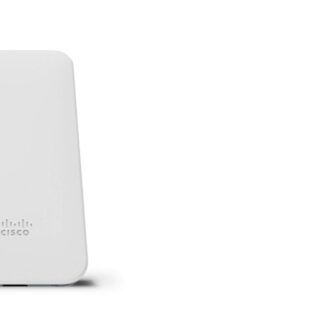
Meraki MR70 Cloud Managed Access Point
SKU: MR70-HW
From: Original price was: £910.88.£573.86Current price is: £573.86. +VAT (£694.37 incl. VAT)End Of Life (no longer for sale)
-
product unavailable

Meraki MR74 Cloud Managed AP
SKU: MR74-HW
From: Original price was: £1,159.54.£846.86Current price is: £846.86. +VAT (£1,024.70 incl. VAT)End Of Life (no longer for sale)
-
product unavailable
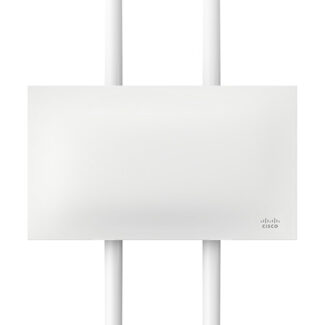
EoS Meraki MR84 Cloud Managed AP
SKU: MR84-HW
From: Original price was: £2,316.99.£1,560.60Current price is: £1,560.60. +VAT (£1,888.33 incl. VAT)End Of Life (no longer for sale)
-
product unavailable
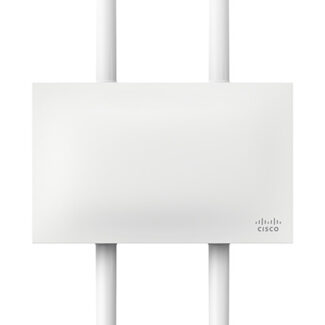
EOL Meraki MR72 Cloud Managed Access Point
SKU: MR72-HW
From: Original price was: £1,263.21.£819.08Current price is: £819.08. +VAT (£991.09 incl. VAT)End Of Life (no longer for sale)
-
Sale!

Meraki MR76 Cloud Managed AP
SKU: MR76-HW
From: Original price was: £1,699.83.£639.47Current price is: £639.47. +VAT (£773.76 incl. VAT)In Stock
-
Sale!

Meraki MR86 Cloud Managed AP
SKU: MR86-HW
From: Original price was: £2,366.25.£1,483.64Current price is: £1,483.64. +VAT (£1,795.20 incl. VAT)In Stock
-
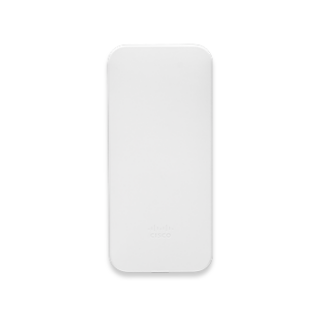
Meraki MR78 Entry Level Cloud Managed Outdoor Wi-Fi 6 Access Point
SKU: MR78-HW-Bundle=
From: Original price was: £1,230.04.£509.90Current price is: £509.90. +VAT (£616.98 incl. VAT)In Stock
-
Sale!
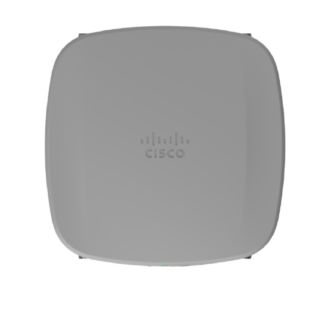
Catalyst 9163E AP(W6E, tri-band 2×2,Outdoor) w/MERAKI
SKU: CW9163E-MR
From: Original price was: £2,457.62.£739.74Current price is: £739.74. +VAT (£895.09 incl. VAT)Available on back-order
The Meraki Enterprise License is the only license for Meraki MR wireless access points. It is available in 1,3,5,7,10 year lengths.
Q: How does Meraki licensing work?
A: Meraki devices use the Meraki cloud for centralized management and control. The Meraki cloud is licensed on a “per device, per year” basis. Each organization is licensed for a certain number of devices through a termination date.
Q: How much does an Enterprise Cloud license cost?
A: License prices vary for each product line. For example, a one year wireless license is $150 list price and a three year switch license is $400 list price. Licenses are available across the MR, MX and MS products for different time durations (1, 3, 5, 7 and 10 years).
Q: How do I buy an Enterprise Cloud License?
A: You can buy a license through an authorized Meraki Partner.
Q: Do I have to buy more licenses every time I buy new hardware?
A: Not necessarily. Licenses are sold separately from the hardware. For example, you could upgrade from the MR16 to the MR24 without buying new licenses. The same will apply for new products that are released in the future.
Q: Do I need to have a license for every piece of Meraki hardware?
A: Yes, every Meraki hardware component requires a cloud license to be managed. If you see a warning that says ‘Your organization is in excess of its device limits’ on the Meraki Dashboard, this means that you have more devices than licenses in your organization.
Q: Are there different license tiers or editions?
A: The wireless and switch lines have one tier: Enterprise. The MX line has two tiers: Enterprise and Advanced Security.
Q: How does licensing vary between different Meraki product lines, e.g., wireless, switches, and security appliances?
A: In general, all Meraki products follow the same licensing model. The primary difference between them is that with all wireless access points (MR series) the license is the same for all hardware models, whereas with the switches (MS series) and security appliance line (MX series) each hardware model has a different license. Example: the LIC-ENT-1YR (1 year enterprise MR license) applies to any of the MR access points. The LIC-MS220-24-1YR (1 year enterprise MS220-24 license) applies to the MS220-24 model. The LIC-ENT-MX64-1YR (1 year enterprise MX64 license) applies to the MX64.
Q: Is Advanced Security Licensing available for Z-Series devices?
A: Advanced Security licensing and features are currently only available on MX devices, not on Z-Series devices, or any other Meraki series of devices.
Q: Can I upgrade from Enterprise to Advanced Security (MX Only)?
A: You can purchase an Advanced Security key which includes all of the devices you would like to be licensed for and apply it as a renewal onto your account. You can also contact the Cisco Meraki Support team, and they can upgrade your organization to Advanced Security.
Q. Can my organization be downgraded from Advanced Security to Enterprise?
Yes, you can purchase and apply an Enterprise renewal key that covers all devices in your organization; this will revert your organization to an Enterprise state. You can also contact Meraki Support and have your organization downgraded. Please note that if the organization is downgraded, you will not receive any additional time from the downgraded license keys.
Q: How does support relate to licensing?
A: A Meraki license includes enterprise-class support.
Q: How does hardware warranty relate to licensing?
A: The hardware warranty is tied to the hardware unit, not the license. Hardware that has a lifetime warranty (e.g., the MR24) is warranted for the life of the hardware. Hardware with a fixed term warranty, e.g., 1 year, has a 1 year warranty regardless of the license.
Q: Can I move licenses between organizations?
A: Yes you can. Licenses that have been applied to an organization within the last 7 days can be re-applied to another organization. Please read this article for more details.
Q: What happens if I add devices in the middle of my license term?
A: Meraki sells 1, 3, 5, 7 and 10 year licenses, but does not sell pro-rated licenses. When you add a license to an existing account, we calculate the amount of extra time in your account and extend the co-terminating renewal date for all your devices accordingly.
Let’s say you originally purchased a 10 AP, 1 year license. 4 months into the license term you decide to add a 6 AP, 1 year license. You have extra credit of 4 x 6 = 24 AP-months. We automatically apply those 24 AP-months for your new 16 AP network. This gives you an additional 24 / 16 = 1.5 months.
In this way an account only has a single co-terminating renewal date, avoiding the confusion associated with multiple renewal dates. To anticipate how new licenses will affect your co-termination date, please reference Meraki’s License Calculator.
Q: What happens when my license runs out?
A: You can purchase a renewal through an authorized Meraki partner. If you chose not to renew, you will no longer be able to manage your devices via the Meraki cloud, and your Meraki network devices will cease to function. This means that you will no longer be able to configure or make changes to your Meraki network equipment, and your Meraki network products will no longer allow traffic to pass to the Internet. With Systems Manager networks, you will no longer be able to enroll devices or change settings for currently enrolled devices.
Q: How do I know which licenses to renew?
A: Cisco Meraki Licensing is co-terminating. This means the end dates for all licensing is averaged together based on device type and licensing limits. In other words, your individual licenses don’t expire because they are averaged into one expiration date.
Q: How do I renew my licensing?
A: The recommended practice for applying a renewal is to purchase a single license key that covers every device currently in the Organization for some number of years. Applying that license key as a renewal will then extend the Organization’s licensing by that many years.
When a license key is applied as a renewal, the Organization’s licensing state updates to match the device count of that license key. For example, if an Organization with licensing for 5 APs were to have a 2-AP license applied as a renewal, that Organization would only be licensed for 2 APs. In this instance, it would be 3 APs over their license limit, and therefore out-of-compliance.
Q: Will I be notified before my license expires?
A: Yes, administrators listed on the account will be sent notifications 30 days prior to account expiration outlining the steps for license extension. A further e-mail will be sent 3 days prior to account expiration. In addition, an account expiration banner will be displayed in the Meraki dashboard during this time.
Q: Will I be notified before my account is shut off if I am in excess of my device limits?
A: Yes, administrators listed on accounts that have more devices than cloud licenses will be sent notifications 30 days prior to account expiration outlining the steps for license purchase.
Q: What does it mean to be ‘out of license’?
A: ‘Out of license’ is a term that refers to an organization that is in one of the following two states: (1) Cloud license has expired, or (2) The number of hardware devices exceeds the number of cloud licenses. If an organization is out of license it means it has been deactivated, and either license renewals or additional licenses are required for the Meraki products to function, and for these products to be manageable using the Meraki cloud.
Q: How long do I have to reactivate my account after it expires?
A: You can reactivate your account at any point in the future after it expires by adding the necessary number of valid licenses. Please note that once your account expires, your products will stop functioning.
Q: Can I purchase a new license for a used piece of hardware purchased on the secondary market?
A: Before purchasing any piece of Cisco Meraki hardware on a secondary market such as eBay, you are advised to contact Cisco Meraki support (https://meraki.cisco.com/support) to confirm that the hardware has not been reported stolen from a Cisco Meraki trial program or a bona fide purchaser. Please have the serial number of each piece of hardware available when you contact Cisco Meraki support. Cisco Meraki will not support or sell licenses for hardware units that have been reported stolen.
Q: Do I need duplicate licenses to cover my security appliance in a warm spare configuration?
A: No, if two security appliances are in a warm spare/HA configuration licensing is only required for one of the two devices. The only additional cost of a warm spare configuration is the redundant hardware. Switches in warm spare/HA will require two individual licenses.


